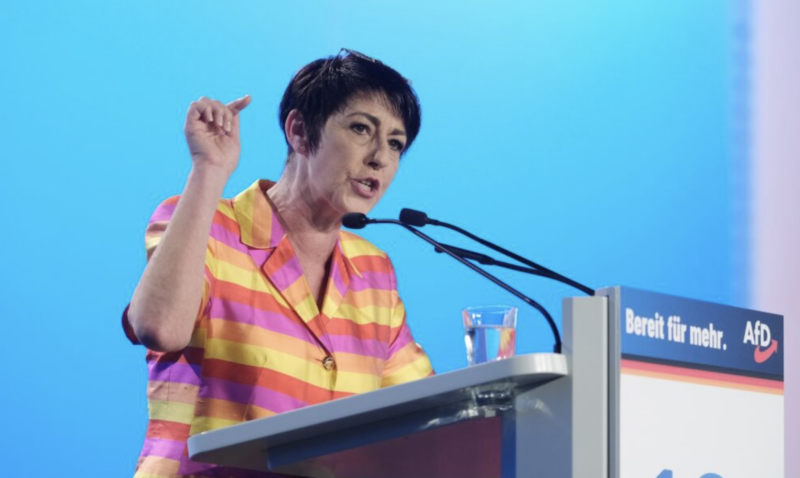The European Union’s ambitious new initiative to tackle election disinformation, dubbed the European Democracy Shield (EDS), has landed with a bang—and not the good kind. Unveiled on May 20, the proposal has already ruffled feathers across the political spectrum, sparking fierce debate over whether it protects democracy or quietly undermines it.
Billed as a safeguard against foreign meddling, the EDS would expand the powers introduced under the Digital Services Act (DSA), but critics—particularly from the conservative camp—are calling foul. Their worry? That the plan’s real goal isn’t to shield elections, but to muzzle dissent and hand narrative control to Brussels-backed gatekeepers.
For MEP Christine Anderson from the Europe of Sovereign Nations, the proposal crosses a dangerous line. “This isn’t about defending democracy,” she said bluntly. “It’s about Brussels deciding who gets to win elections.” She called the plan a blatant overreach, slamming it as a threat to national sovereignty and a direct assault on freedom of speech.
Anderson’s not alone. Lawmakers from several conservative and nationalist blocs say the Shield is a thinly veiled censorship machine dressed up in democratic clothing.
Defenders of the EDS, like Tomas Tobé of the European People’s Party, argue that Europe needs a unified, real-time response to counter online threats. He pointed to incidents like Romania’s cancelled vote last year—despite no hard proof of foreign interference—as evidence that national governments can’t go it alone.
The centerpiece of the Shield? A surge in funding for EU-approved “fact-checkers” and media outlets deemed trustworthy. But skeptics note that many of these groups lean heavily left—and have already faced scrutiny. Meta, for example, distanced itself from several of these partners during the 2024 elections after concerns about political bias surfaced.
The EDS doesn’t stop at fact-checkers. It also proposes:
-
Making platforms reveal the inner workings of their content algorithms.
-
Imposing stricter rules on what constitutes “hate speech.”
-
Pumping more public money into NGOs tasked with promoting “digital literacy” and “critical thinking.”
However, the groundwork is already there. Investigations recently exposed that Brussels had funneled €130 million to friendly media outlets ahead of the EU vote. Another €650 million has gone toward researching online “hate” and “disinformation.” The Democracy Shield, critics argue, is just putting a bow on an already operational influence machine.
For Jaroslav Bžoch, a Czech MEP from the Patriots group, the issue isn’t foreign threats—it’s who gets to define the truth. “It’s not the EU’s job to dictate what’s true,” he said. He fears publicly funded NGOs could easily shift from watchdogs to political enforcers.
Even Sander Smit, a member of the EPP, voiced concern—despite his party’s backing of the Shield. He cited scandals like Timmermansgate, where green NGOs allegedly influenced policy behind closed doors, and the poorly handled Chat Control legislation, which faced backlash in the Netherlands. “Until we clean our own house,” Smit warned, “we can’t justify pouring more money into these organizations.”
Hungarian MEP Csaba Dömötör took it a step further. While he acknowledged the risk of foreign disinformation, he warned that Brussels’ cure might be worse than the disease. Unelected “fact-checkers,” he said, could end up wielding enormous power over public debate—without any real accountability.
Back on the legal front, Christine Anderson raised a bombshell reminder: under EU law, national elections are the sole responsibility of member states. Handing Brussels any control over their conduct, she argued, would be a direct treaty violation.
She also blasted the idea of taxpayer-funded watchdogs acting as arbiters of truth. “With no fixed definition of ‘disinformation’ or ‘hate speech,’” Anderson warned, “what’s to stop this from becoming ideological censorship?”
Drawing a parallel to pandemic-era speech suppression, she noted how early skepticism about vaccines was dismissed as misinformation—only for many of those concerns to be vindicated later. “In a free society,” she said, “people must have the right to be wrong. That’s how we eventually arrive at the truth.”
With opinions sharply divided and elections looming, the future of the Democracy Shield remains uncertain. Yet one thing’s for sure—this debate has struck a nerve.
While Brussels insists it’s building a bulwark against disinformation, opponents warn the EU is skating dangerously close to information control. The big question? Whether Europe can truly defend its democratic values while handing unprecedented authority to unelected technocrats and taxpayer-backed NGOs.
In trying to shield democracy, some argue, Brussels may be chiseling away at its very foundation.




